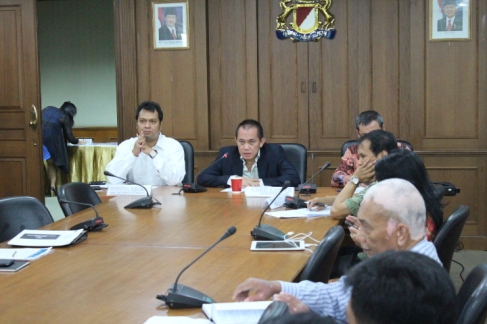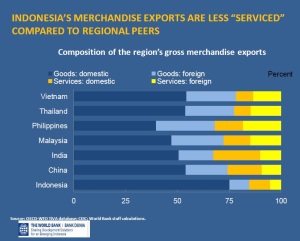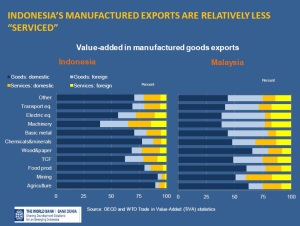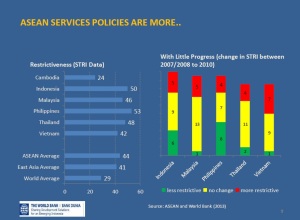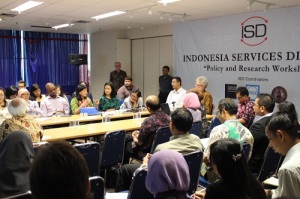Brisbane, November 14, 2013 – A more informed policy making process is crucial in helping the services sector to grow. It can be achieved through constant dialogue between the government and industry associations. That is one of the points emphasized by the CEO of Australian Services Roundtable (ASR) Ian Birks in his presentation in the short course titled “Best Practices and Strategies for Promoting Indonesia’s Services Exports”. Indonesian government officials from several ministries and representatives of the Indonesia Services Dialogue (ISD) participated in the short course organized in Brisbane by UniQuest of the University of Queensland in November 1-15, 2013.
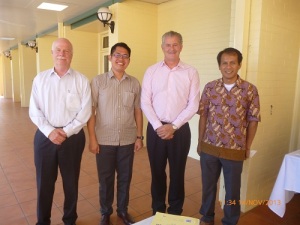
(Right-left) Executive Director of ISD Barliana Amin, CEO of Australian Services Roundtable Ian Birks, Public Outreach Officer of ISD Daniel Purba and Senior Lecturer of UQ Business School Dr. Paul Brewer.
Commonly seen as strong in agriculture and mining sector, Australia is actually a services-led economy. Ian further explained that services industries make up the bulk of the Australian economy, accounting for almost 70 per cent of GDP while agriculture and mining are respectively accounting for only 2,6 and 7,7 per cent of GDP. “However, the share of services in Australian total exports in 2011 is AUD 50,1 billion or sixteen per cent. It shows that Australian services industries still focus mostly on domestic market,” siad Ian.
In terms of employment, over 85 per cent of employment in Australia is in the services sector. Health care and social assistance has become a leading employer. This is due largely to the aging of the population. Retail and construction are also significant employers. Although retail trade is a high employer, structurally low wages in the sector mean that the overall wages bill is relatively modest. The largest total wages in the economy are paid by professional, scientific and technical services, and construction, both of which are high employers and have relatively high average wages. Finance and insurance and administrative and support services are significant contributors to total wages, and wages are rising in both sectors.
The growth of services sector in Australia is partly due to the active advocacy of ASR as the only dedicated “whole-of-services” industry organization. As the voice of Australian services industries, ASR actively leads the debate on domestic services policy reform to ensure Australia has a competitive local industry with strong productivity. “ASR is currently also advocating the need for services innovation as the key to stay at the top of the high-value services chain,” Ian Birks added.
In response to Ian, the Executive Director of Indonesia Services Dialogue Barliana Amin shared that Indonesia also needs domestic services policy reform to grow its services sector more rapidly. Policy restrictions, especially on foreign direct investment, are thought to have hampered the growth of the sector. “That’s why we are trying to establish the Indonesia Services Dialogue to promote policy dialogue between the government, private sectors and academics as well as to find solutions to grow a more efficient services sector. What ASR does is an example of how an industry association can effectively voice the interest of services sector and we hope to learn a lot from ASR,” said Amin. (DP/ISD)

